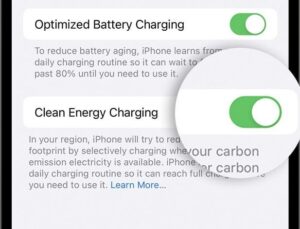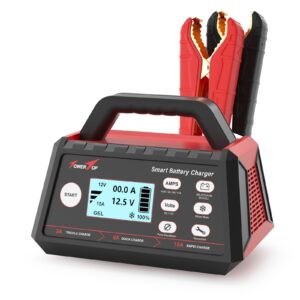How Long Does Battery Reconditioning Take? If you’ve ever wondered about the time it takes to recondition a battery, you’re in the right place. In this article, we’ll dive into the details and provide you with a comprehensive answer. Battery reconditioning, the process of reviving old or worn-out batteries to extend their lifespan, can be quite straightforward once you understand the steps involved. So, let’s get started and find out just how long battery reconditioning takes.
How Long Does Battery Reconditioning Take
Whether you have a car battery, a laptop battery, or any other rechargeable battery, they all eventually lose their ability to hold a charge. This can be frustrating and costly, as replacing batteries can be quite expensive. However, there is a process called battery reconditioning that can help restore the performance of these batteries. One question many people have is, how long does battery reconditioning take? In this article, we will explore the various factors that can affect the time it takes to recondition a battery and provide you with some general estimates.
Understanding Battery Reconditioning
Before we dive into the time it takes for battery reconditioning, let’s briefly understand what battery reconditioning is. Battery reconditioning is the process of restoring a weak or old battery to its full capacity. This process involves several steps, including removing and cleaning battery terminals, testing the battery, desulfating the battery, and, in some cases, replacing damaged cells. The goal of battery reconditioning is to extend the lifespan and improve the performance of the battery.
Factors Affecting Battery Reconditioning Time
The time it takes to recondition a battery can vary depending on several factors. Here are some of the key factors that can affect the duration of the reconditioning process:
Battery Type
The type of battery you are reconditioning plays a significant role in determining the time required. Different batteries have different chemical compositions and capacities, which can impact the reconditioning time. For example, car batteries are typically larger and require more time compared to smaller batteries like laptop or smartphone batteries.
Battery Condition
The initial condition of the battery also plays a crucial role in determining the reconditioning time. If the battery is only slightly degraded, it may take less time to recondition compared to a severely degraded battery. Batteries that have been properly maintained and are in better condition generally require less time for reconditioning.
Reconditioning Method
There are several methods and techniques available for battery reconditioning. Some methods may take longer than others, depending on the complexity and effectiveness of the process. For example, desulfation, which involves removing sulfation from the battery cells, can take several hours or even days depending on the severity of the sulfation.
Tools and Equipment
The tools and equipment you use for battery reconditioning can also impact the time required. Using high-quality tools specifically designed for reconditioning batteries can streamline the process and save time. On the other hand, using inadequate or substandard tools may lead to longer reconditioning times or even ineffective results.
General Time Estimates for Battery Reconditioning
While the time it takes to recondition a battery can vary, we can provide some general estimates based on common scenarios. Please note that these estimates are approximate and can vary depending on the factors mentioned earlier.
Car Batteries
Car batteries are typically larger and have higher capacities compared to other batteries. The reconditioning process for car batteries can range from a few hours to a day or more, depending on the condition of the battery and the reconditioning method used.
Small Batteries (Laptop, Smartphone, etc.)
Small batteries like those found in laptops, smartphones, or other portable devices generally require less time compared to car batteries. The reconditioning process for small batteries can take anywhere from a couple of hours to a day.
Deep Cycle Batteries
Deep cycle batteries, commonly used in boats or renewable energy systems, may take longer to recondition due to their design and capacity. The reconditioning process for deep cycle batteries can range from a few hours to several days.
Lead-Acid Batteries
Lead-acid batteries, often found in vehicles or backup power systems, can take longer to recondition compared to other battery types. The reconditioning process for lead-acid batteries can take several hours or even up to a week, depending on the battery condition and reconditioning method used.
Tips to Speed Up Battery Reconditioning
While the time it takes to recondition a battery can vary, there are some tips and tricks you can follow to speed up the process:
- Start with batteries in better condition, as they may require less time to recondition.
- Use high-quality tools and equipment specifically designed for battery reconditioning.
- Follow the reconditioning process carefully and avoid skipping any steps.
- Consider using advanced reconditioning methods or devices that can expedite the process.
- Ensure the battery is fully discharged before starting the reconditioning process.
- Implement proper maintenance practices to prolong the lifespan of your batteries, reducing the need for reconditioning in the future.
In conclusion, the time it takes for battery reconditioning depends on various factors such as battery type, initial condition, reconditioning method, and tools used. While there are general time estimates for different types of batteries, it’s important to remember that these are approximate and can vary based on individual circumstances. By understanding the factors that affect reconditioning time and following some tips to speed up the process, you can effectively restore the performance of your batteries and prolong their lifespan.
Frequently Asked Questions
How long does battery reconditioning take?
Battery reconditioning times can vary depending on several factors, including the type and condition of the battery, the reconditioning method used, and the expertise of the person performing the reconditioning. Generally, the process can take anywhere from a few hours to a couple of days.
What factors influence the time required for battery reconditioning?
The time required for battery reconditioning can be influenced by factors such as the size and capacity of the battery, the level of sulfation or damage present, and the reconditioning equipment or techniques used. Additionally, the experience and skill of the individual performing the reconditioning can also impact the time it takes.
Does the age of the battery affect the reconditioning time?
Yes, the age of the battery can play a role in the time required for reconditioning. In general, older batteries may have more significant sulfation or damage, which can extend the reconditioning process. However, with proper techniques and equipment, even older batteries can be successfully reconditioned within a reasonable timeframe.
Can all types of batteries be reconditioned in the same amount of time?
No, different types of batteries may require different reconditioning methods and subsequently, different amounts of time. For example, lead-acid batteries commonly used in automobiles may have a shorter reconditioning time compared to rechargeable lithium-ion batteries used in portable electronic devices. It’s important to consider the specific requirements of each battery type when estimating the reconditioning time.
Are there any shortcuts or techniques to expedite the battery reconditioning process?
While there are various methods and products advertised to speed up the battery reconditioning process, it’s important to be cautious. Rushing the process or using unverified techniques may result in ineffective reconditioning or even damage to the battery. It’s recommended to follow reliable reconditioning guides and take the necessary time to ensure a thorough and safe reconditioning process.
What can be done to optimize the battery reconditioning time?
To optimize the battery reconditioning time, it’s essential to ensure you have the appropriate tools and equipment for the specific battery type. Additionally, following proper reconditioning techniques and maintaining a clean working environment can help streamline the process. Regularly maintaining batteries and addressing any issues promptly can also reduce the time needed for reconditioning in the long run.
Final Thoughts
Battery reconditioning is a practical solution for extending the lifespan of your batteries and saving money in the long run. The amount of time it takes to recondition a battery varies depending on several factors. The size and type of battery, as well as its current condition, play a significant role. Generally, the process can take anywhere from a few hours to a couple of days. The reconditioning process involves several steps, such as desulfation, recharging, and testing. However, with the right equipment and knowledge, anyone can easily recondition their batteries. So, if you’re wondering how long battery reconditioning takes, it’s best to consider the specific battery and its condition.



